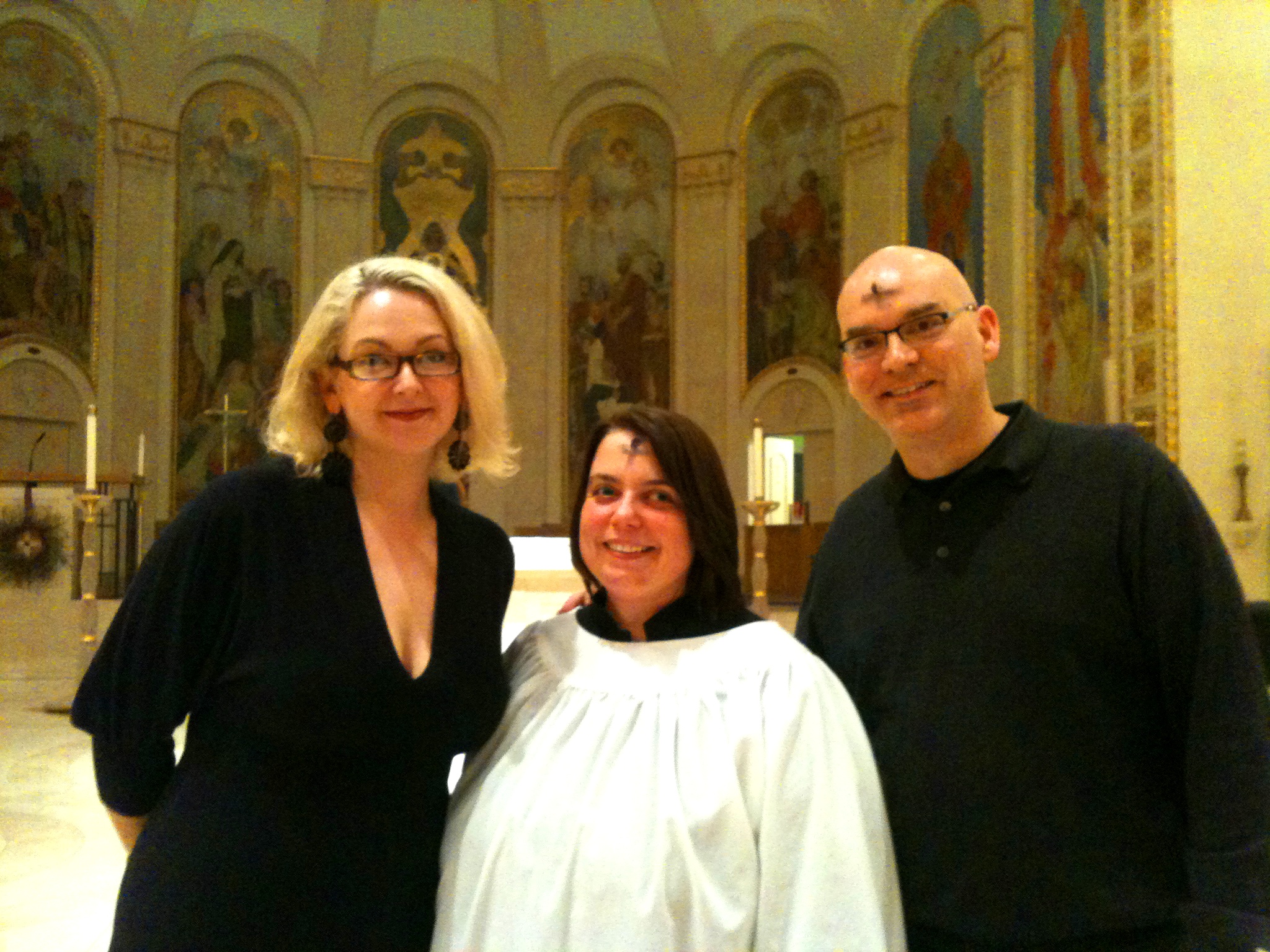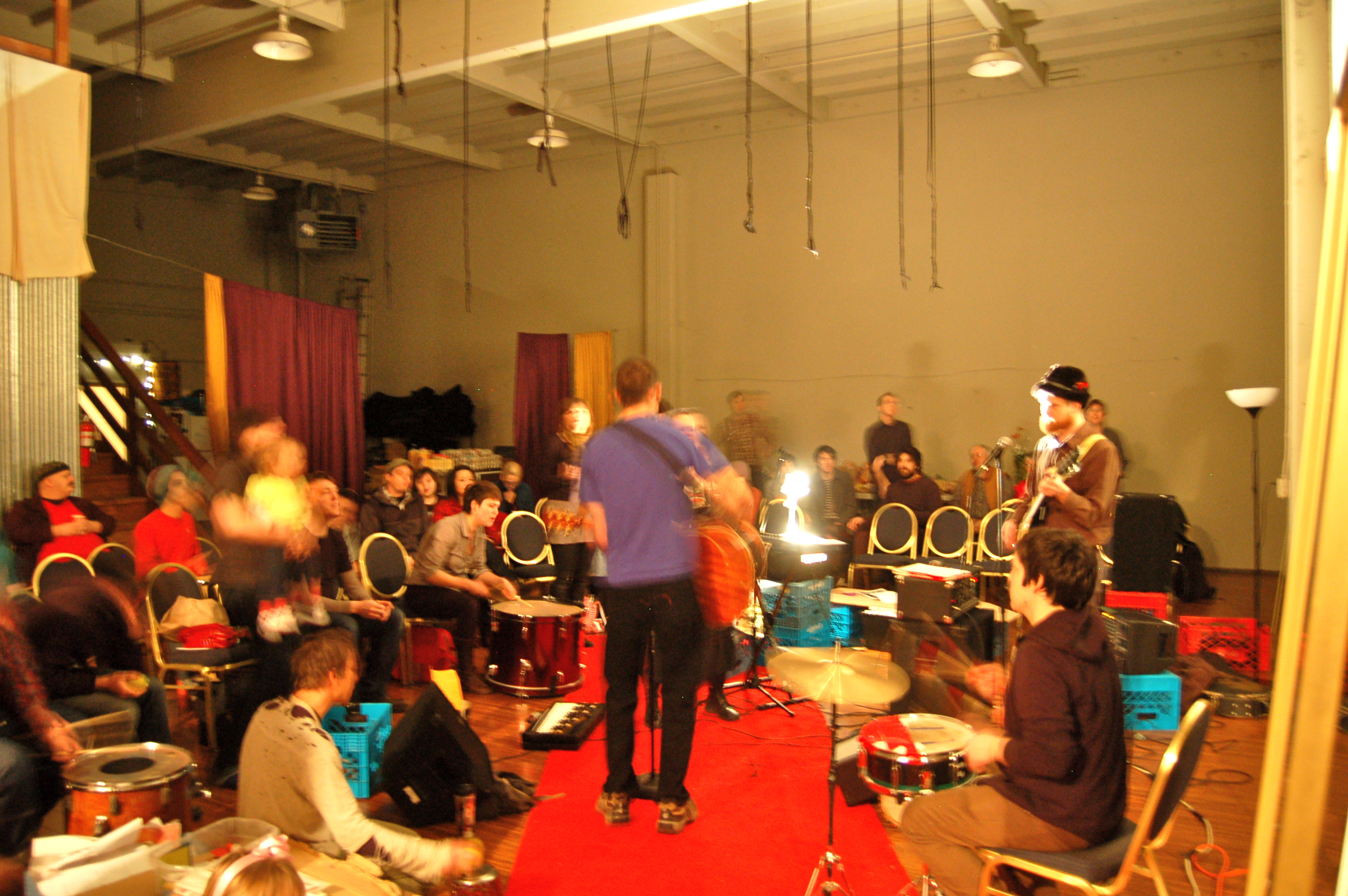You may already know how keen I am on the idea of getting up on Sunday morning and going to church just to be told what a lousy, sinning piece of crap I am. So why would I put myself through that in the middle of the week?
I did it for you, dear reader.
You’re welcome.
Ash Wednesday only comes once a year (thank God!) and it’s conveniently tucked in after Shrove Tuesday, a.k.a. Mardis Gras (Hallelujah!). It kicks off the 40-day lent period during which Catholics and members of a few other churches swear off something they hold near and dear. According to a quick Google search, it’s a personal sacrifice that could include (but is not limited to) taking a break from:
Coffee, Internet use, red meat, white meat, chocolate, saying the “F” word, doing the “F” word, cigarettes, shopping at Nordstrom, browsing the QVC channel, beer, thinking not-nice thoughts, reality TV, OK Cupid, heavy metal, heavy sarcasm, heavy petting, Facebook, Diet Coke, tortilla chips, Twitter and pancakes.
Why do this? Because Lent is a time for reflection and repentance from sin. (If you went to church, you’d already know this, sinner!) When you attend the Ash Wednesday service, the priest will even smudge a cross of black ashes on your forehead — a throw-back to the Bible-times practice of showing repentance by putting ashes on your head. You’re supposed to keep it there until it wears off, but with rain in the forecast, I decided to cut my penance short.
My gateway to learning about Ash Wednesday wasn’t through church, but, rather, T. S. Eliot. And, just for the helliot, I thought I’d share his poem, “Ash Wednesday,” which is his personal take on cessation from sin and materialistic striving. It has as much in common with the Buddhistic concept of Nirvana as it does with the precepts of the Anglican church, to which he’d converted when he wrote the damn thing.
Fans of the prophet Ezekiel or of blues spirituals might catch his reference to “Dem Dry Bones”; and if you’ve read 1 Kings 19:1–8 or the Grimm Brothers’ “The Juniper Tree,” you’ll get another one of Eliot’s trademark inside jokes.
h Wednesday: Because Sunday Just Isn’t Enough
You may already know how keen I am on the idea of getting up on Sunday morning and going to church just to be told what lousy, sinning piece of shit I am. So why would I put myself through that in the middle of the week?
I did it for you, dear reader.
You’re welcome.
Ash Wedenesday only comes once a year (thank God!) and it’s conveniently tucked in after Shrove Tuesday, a.k.a. Mardis Gras (Hallelujah!). It kicks off the 40-day lent period during which Catholics and members of a few other churches swear off something they hold near and dear. According to a quick Google search, it’s a personal sacrifice that could include (but is not limited to) taking a break from:
Coffee, Internet use, red meat, white meat, chocolate, saying “fuck”, fucking, cigarettes, shopping at Nordstrom, browsing the QVC channel, beer, thinking not-nice thoughts, reality TV, OK Cupid, heavy metal, heavy sarcasm, heavy petting, Facebook, Diet Coke, tortilla chips, Twitter and pancakes.
Why do this? Because Lent is a time for reflection and repentance from sin. (If you went to church, you’d already know this, sinner!) When you attend the Ash Wednesday service, the priest will even smudge a cross of black ashes on your forehead, a throw-back to the Bible-times practice of showing repentance by putting ashes on your head. You’re supposed to keep it there until it wears off, but with rain in the forecast, I decided to cut my penance short.
We attended the service at St. Mary’s Cathedral http://maryscathedral.com/. And, yes, it was all about sin and kneeling before the Holy Word of The Lord whenever a snippet of scripture was read. But the choir was off-the-hook amazing. Humble repentance in pitch-perfect, four part harmony. It made me want to sin some more just so I could come back for more forgiveness.
My gateway to Ash Wednesday wasn’t through church, but, rather, T. S. Eliot. And, just for the helliot, I thought I’d share his poem, “Ash Wednesday,” which is his personal take on cessation from sin and materialistic striving and shares as much in common with the Buddhistic concept of Nirvana http://en.wikipedia.org/wiki/Nirvana as it does with the precepts of the Anglican church, to which he’d converted when he wrote the damn thing.
Fans of the prophet Ezekiel or of blues spirituals might catch his reference to “Dem Dry Bones”; and if you’ve read 1 Kings 19:1–8 or the Grimm Brothers’ “The Juniper Tree,” you’ll get another one of Eliot’s trademark inside jokes.
“Ash Wednesday” weighs in at 1599 words, so pour yourself a cup of coffee (if you haven’t given it up for Lent). But the closing lines really are worth it, and they’re even better if you’ve read the poem from the beginning. If you prefer, you can even invite T. S. into your computer, where he can read the poem directly to you! http://www.dailymotion.com/video/xc5zoo_t-s-eliot-ash-wednesday_creation Anyway, enjoy the poem and quit sinning, you shitty piece of shit!
ASH WEDNESDAY
I
Because I do not hope to turn again
Because I do not hope
Because I do not hope to turn
Desiring this man’s gift and that man’s scope
I no longer strive to strive towards such things
(Why should the agèd eagle stretch its wings?)
Why should I mourn
The vanished power of the usual reign?
Because I do not hope to know
The infirm glory of the positive hour
Because I do not think
Because I know I shall not know
The one veritable transitory power
Because I cannot drink
There, where trees flower, and springs flow, for there is
nothing again
Because I know that time is always time
And place is always and only place
And what is actual is actual only for one time
And only for one place
I rejoice that things are as they are and
I renounce the blessèd face
And renounce the voice
Because I cannot hope to turn again
Consequently I rejoice, having to construct something
Upon which to rejoice
And pray to God to have mercy upon us
And pray that I may forget
These matters that with myself I too much discuss
Too much explain
Because I do not hope to turn again
Let these words answer
For what is done, not to be done again
May the judgement not be too heavy upon us
Because these wings are no longer wings to fly
But merely vans to beat the air
The air which is now thoroughly small and dry
Smaller and dryer than the will
Teach us to care and not to care Teach us to sit still.
Pray for us sinners now and at the hour of our death
Pray for us now and at the hour of our death.
II
Lady, three white leopards sat under a juniper-tree
In the cool of the day, having fed to sateity
On my legs my heart my liver and that which had been
contained
In the hollow round of my skull. And God said
Shall these bones live? shall these
Bones live? And that which had been contained
In the bones (which were already dry) said chirping:
Because of the goodness of this Lady
And because of her loveliness, and because
She honours the Virgin in meditation,
We shine with brightness. And I who am here dissembled
Proffer my deeds to oblivion, and my love
To the posterity of the desert and the fruit of the gourd.
It is this which recovers
My guts the strings of my eyes and the indigestible portions
Which the leopards reject. The Lady is withdrawn
In a white gown, to contemplation, in a white gown.
Let the whiteness of bones atone to forgetfulness.
There is no life in them. As I am forgotten
And would be forgotten, so I would forget
Thus devoted, concentrated in purpose. And God said
Prophesy to the wind, to the wind only for only
The wind will listen. And the bones sang chirping
With the burden of the grasshopper, saying
Lady of silences
Calm and distressed
Torn and most whole
Rose of memory
Rose of forgetfulness
Exhausted and life-giving
Worried reposeful
The single Rose
Is now the Garden
Where all loves end
Terminate torment
Of love unsatisfied
The greater torment
Of love satisfied
End of the endless
Journey to no end
Conclusion of all that
Is inconclusible
Speech without word and
Word of no speech
Grace to the Mother
For the Garden
Where all love ends.
Under a juniper-tree the bones sang, scattered and shining
We are glad to be scattered, we did little good to each
other,
Under a tree in the cool of day, with the blessing of sand,
Forgetting themselves and each other, united
In the quiet of the desert. This is the land which ye
Shall divide by lot. And neither division nor unity
Matters. This is the land. We have our inheritance.
III
At the first turning of the second stair
I turned and saw below
The same shape twisted on the banister
Under the vapour in the fetid air
Struggling with the devil of the stairs who wears
The deceitul face of hope and of despair.
At the second turning of the second stair
I left them twisting, turning below;
There were no more faces and the stair was dark,
Damp, jaggèd, like an old man’s mouth drivelling, beyond
repair,
Or the toothed gullet of an agèd shark.
At the first turning of the third stair
Was a slotted window bellied like the figs’s fruit
And beyond the hawthorn blossom and a pasture scene
The broadbacked figure drest in blue and green
Enchanted the maytime with an antique flute.
Blown hair is sweet, brown hair over the mouth blown,
Lilac and brown hair;
Distraction, music of the flute, stops and steps of the mind
over the third stair,
Fading, fading; strength beyond hope and despair
Climbing the third stair.
Lord, I am not worthy
Lord, I am not worthy
but speak the word only.
IV
Who walked between the violet and the violet
Whe walked between
The various ranks of varied green
Going in white and blue, in Mary’s colour,
Talking of trivial things
In ignorance and knowledge of eternal dolour
Who moved among the others as they walked,
Who then made strong the fountains and made fresh the springs
Made cool the dry rock and made firm the sand
In blue of larkspur, blue of Mary’s colour,
Sovegna vos
Here are the years that walk between, bearing
Away the fiddles and the flutes, restoring
One who moves in the time between sleep and waking, wearing
White light folded, sheathing about her, folded.
The new years walk, restoring
Through a bright cloud of tears, the years, restoring
With a new verse the ancient rhyme. Redeem
The time. Redeem
The unread vision in the higher dream
While jewelled unicorns draw by the gilded hearse.
The silent sister veiled in white and blue
Between the yews, behind the garden god,
Whose flute is breathless, bent her head and signed but spoke
no word
But the fountain sprang up and the bird sang down
Redeem the time, redeem the dream
The token of the word unheard, unspoken
Till the wind shake a thousand whispers from the yew
And after this our exile
V
If the lost word is lost, if the spent word is spent
If the unheard, unspoken
Word is unspoken, unheard;
Still is the unspoken word, the Word unheard,
The Word without a word, the Word within
The world and for the world;
And the light shone in darkness and
Against the Word the unstilled world still whirled
About the centre of the silent Word.
O my people, what have I done unto thee.
Where shall the word be found, where will the word
Resound? Not here, there is not enough silence
Not on the sea or on the islands, not
On the mainland, in the desert or the rain land,
For those who walk in darkness
Both in the day time and in the night time
The right time and the right place are not here
No place of grace for those who avoid the face
No time to rejoice for those who walk among noise and deny
the voice
Will the veiled sister pray for
Those who walk in darkness, who chose thee and oppose thee,
Those who are torn on the horn between season and season,
time and time, between
Hour and hour, word and word, power and power, those who wait
In darkness? Will the veiled sister pray
For children at the gate
Who will not go away and cannot pray:
Pray for those who chose and oppose
O my people, what have I done unto thee.
Will the veiled sister between the slender
Yew trees pray for those who offend her
And are terrified and cannot surrender
And affirm before the world and deny between the rocks
In the last desert before the last blue rocks
The desert in the garden the garden in the desert
Of drouth, spitting from the mouth the withered apple-seed.
O my people.
VI
Although I do not hope to turn again
Although I do not hope
Although I do not hope to turn
Wavering between the profit and the loss
In this brief transit where the dreams cross
The dreamcrossed twilight between birth and dying
(Bless me father) though I do not wish to wish these things
From the wide window towards the granite shore
The white sails still fly seaward, seaward flying
Unbroken wings
And the lost heart stiffens and rejoices
In the lost lilac and the lost sea voices
And the weak spirit quickens to rebel
For the bent golden-rod and the lost sea smell
Quickens to recover
The cry of quail and the whirling plover
And the blind eye creates
The empty forms between the ivory gates
And smell renews the salt savour of the sandy earth
This is the time of tension between dying and birth
The place of solitude where three dreams cross
Between blue rocks
But when the voices shaken from the yew-tree drift away
Let the other yew be shaken and reply.
Blessèd sister, holy mother, spirit of the fountain, spirit
of the garden,
Suffer us not to mock ourselves with falsehood
Teach us to care and not to care
Teach us to sit still
Even among these rocks,
Our peace in His will
And even among these rocks
Sister, mother
And spirit of the river, spirit of the sea,
Suffer me not to be separated
And let my cry come unto Thee.


